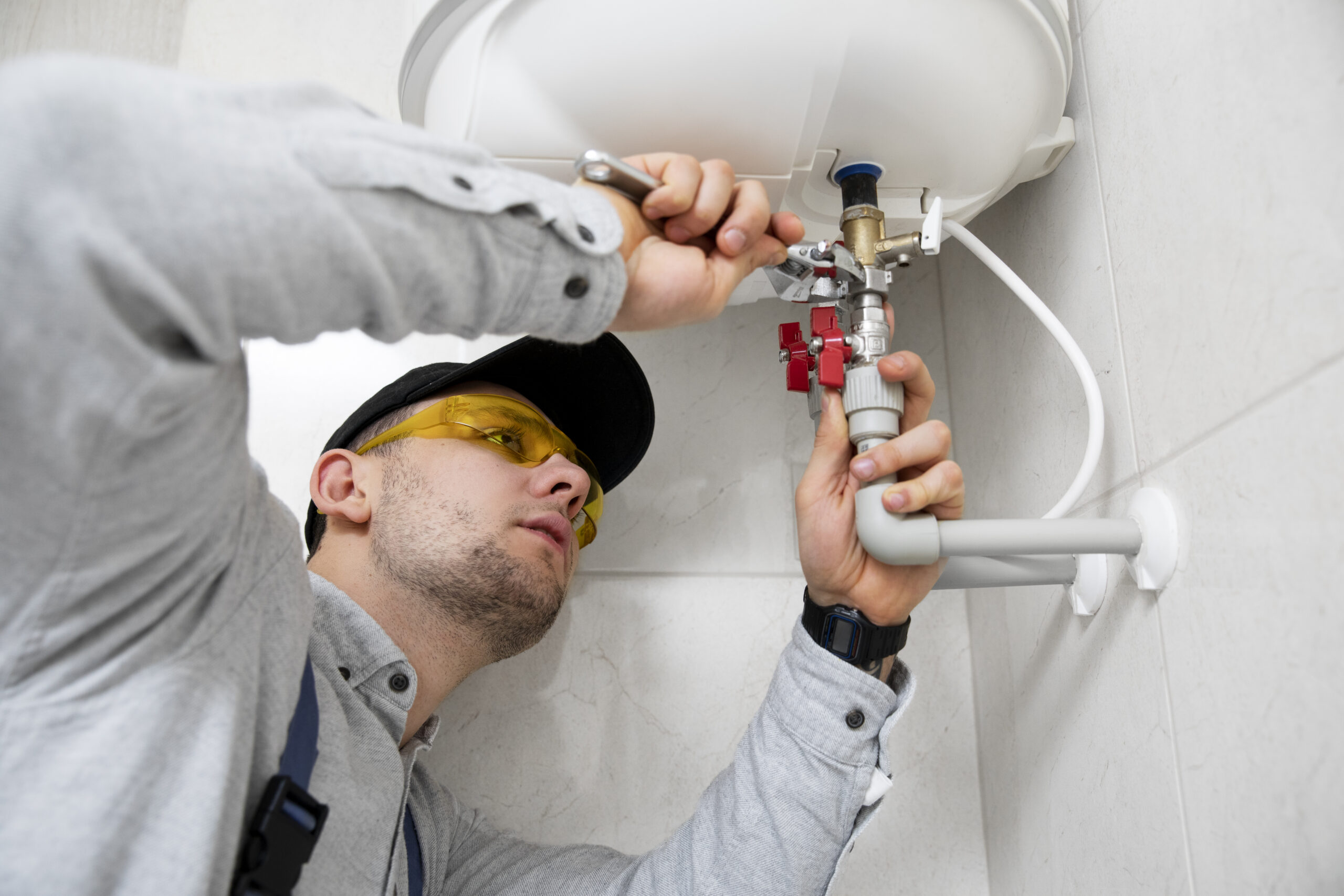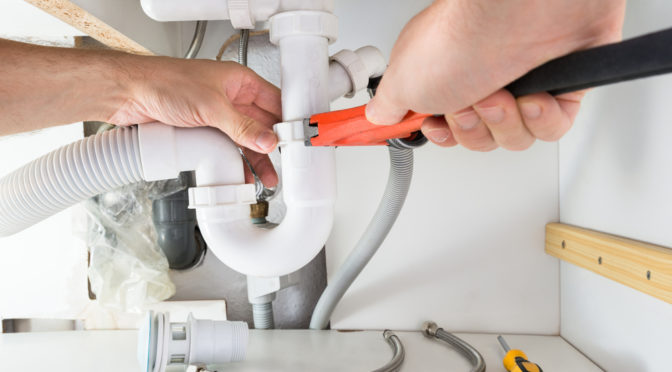We have discovered the article on Plumbing Emergencies: Tips on What To Do Before down the page on the web and figured it made good sense to share it with you on this site.

Plumbing emergency situations can strike at any time, creating tension and possible damage to your home. Whether it's a ruptured pipe, a clogged drainpipe, or a leaky faucet, knowing exactly how to take care of the circumstance till a professional plumbing gets here can save you from more complications. This short article gives vital emergency situation pipes pointers to assist you minimize damage and gain back control throughout a plumbing crisis.
Shut off the Supply Of Water
The very first step in any type of pipes emergency situation is to turn off the water. For local issues, such as a dripping faucet or bathroom, turn off the shutoff near the fixture. When it comes to a major leakage or burst pipeline, locate your home's primary water shut-off valve and transform it off right away. Knowing the area of these valves beforehand can conserve valuable time during an emergency.
Shut down Your Water Heater
In particular emergency situations, such as a burst pipeline, it's a good idea to shut down your hot water heater. This prevents getting too hot or damage to the device when water stops moving. Shut off the power supply to the hot water heater (electric or gas) and allow it cool off to stay clear of prospective dangers.
Momentarily Stop a Burst Pipeline
A ruptured pipeline can lead to considerable water damages in mins. To mitigate the problem:
Call a specialist plumber right away to attend to the trouble permanently.
Have an Emergency Pipes Kit
Prepare a basic pipes emergency package to handle small issues successfully. Your kit must include:
Having these tools handy can make a significant distinction in your capacity to manage emergency situations.
Unclog Drains Safely.
A stopped up drain can be a discouraging and unpleasant issue. Right here's just how to tackle it:.
If these methods don't function, avoid utilizing too much force, as it might get worse the blockage.
Handle Overflowing Toilets.
An overruning toilet can cause instant disorder. Here's what you must do:.
Address Tiny Leaks with Temporary Fixes.
Small leaks can quickly become considerable issues if left untreated. Utilize these short-term repairs up until expert assistance shows up:.
While these solutions aren't irreversible, they can assist minimize water loss and damages.
Deal With Frozen Piping Very Carefully.
In colder environments, frozen pipelines are a typical emergency. If you believe a frozen pipeline:.
Know When to Call an Expert.
While quick fixes can assist briefly, certain pipes problems require prompt expert attention. Call a plumbing professional if:.
Immediately getting in touch with a specialist guarantees the concern is fixed appropriately and avoids more complications.
Stop More Damage.
Taking fast activity to reduce damages can save you time and money in the future. Here's exactly how:.
Verdict.
Plumbing emergencies can be frustrating, yet with the right understanding and devices, you can take care of the scenario effectively until assistance gets here. By turning off the water supply, dealing with small leaks, and utilizing momentary repairs, you can lessen damages and maintain your home safe. Bear in mind, these tips are temporary services; always seek advice from a certified plumbing technician to manage the origin of the trouble. Prep work and fast reasoning are your finest allies in any type of plumbing emergency.
8 Helpful Tips for Managing Plumbing Emergencies at Home
If your plumbing system hasn’t failed once, wait for it because almost everyone has a story to tell. Sometimes, it could be simple emergencies such as a leaking pipe, a blocked cistern, or even a big burst pipe. In situations like this, you need to have some handy tips to save you some money and from possible damages.
Take care of minor issues early.
Sometimes, you could have avoided an emergency by taking proactive measures while it was still early. Some major plumbing emergencies can be a result of an ignored minor issue. We recommend that you have items like plumbing tapes and other related items. A plumbing tape can allow you to manage minor leaks before the plumber arrives.
Cut off the water supply.
This tip is essential in almost any type of leakage problem. For problems like minor leakages in the toilet or kitchen, turn off the supply that takes water to the affected pipes. If the leakage is a major pipe, you must shut off the supply valve to the entire building. This will help you avoid flooding your home and neighbors if you share a flat.
Know your plumbing system
Folks typically move into a new apartment without understanding the water supply around the building. This can prove disastrous if a water emergency arises and the plumber is far away. The previous tip will prove useless if you don’t practice this one. More importantly, know where your water shut-off valve is located – you’ll need that knowledge to prevent potential home floods.
Have some common handy tools
There are lots of plumbing emergencies that you can handle without hiring a plumber. That’s why you must keep some tools available always. Some tools that you can use to fix simple plumbing emergencies easily include plumbing tapes, screwdrivers, thread seal tapes, plungers, pliers, tape measures, and rubber gloves.
Insulate your pipes from cold
You’ll save yourself from many plumbing expenses if you protect your water pipes from the cold. This is because of the harmful effects that cold weather can have on your pipes. During winter, your pipes can burst from being overly expected to freezing temperatures. So, make sure insulators are there to keep the pipes working correctly.
Avoid practices that will clog your toilet.
Many people indulge in practices that can damage the plumbing system of the entire building. One of these is when they use their toilet to dispose-off garbage. They flush all kinds of things, such as paper towels, bandages, hairs, female sanitary products, etc., down the toilet. This will block your toilet in the long run, incurring unnecessary expenditures. Dump such waste in the trash instead.
Check your dials regularly.
Sometimes, there could be leakages in your home without noticing them in time. So, constantly monitor your water meter dial. If the dial is reading when there is nobody using water, this is an indicator that there is leaking. Check for leaks immediately. Call a plumber as soon as possible if you can’t find any.
https://www.constructionplacements.com/8-helpful-tips-for-managing-plumbing-emergencies-at-home/

I found that review on Expert Tips for Managing a Plumbing Emergency Until Help Arrives when doing a search on the internet. Liked our posting? Please quickly share it. Let somebody else check it out. I thank you for reading our article about What to Do During a Plumbing Emergency.
Click Here
 Michael Oliver Then & Now!
Michael Oliver Then & Now! Jennifer Love Hewitt Then & Now!
Jennifer Love Hewitt Then & Now! Nancy McKeon Then & Now!
Nancy McKeon Then & Now! Robbie Rist Then & Now!
Robbie Rist Then & Now! Meadow Walker Then & Now!
Meadow Walker Then & Now!